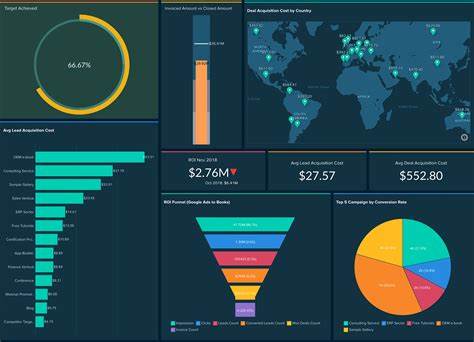
The realm of sports betting has undergone a profound transformation, with data analytics emerging as a game-changer in enhancing the strategies and decision-making processes of bettors. By harnessing the power of historical data, statistical analysis, and predictive modeling, sports bettors can now make more informed and calculated wagers, significantly improving their chances of success.

Leveraging Historical Data for Betting Insights
At the core of data analytics in sports betting lies the wealth of historical data available. From team and player statistics to past match outcomes, this trove of information provides invaluable insights that can shape effective betting strategies. By systematically organizing and analyzing this data, bettors can uncover patterns, trends, and correlations that may not be immediately apparent to the naked eye. One crucial aspect of utilizing historical data is the ability to identify key factors that influence a team’s or player’s performance. Through techniques like regression analysis, bettors can quantify the impact of variables such as player form, team strategy, and weather conditions on game outcomes, leading to more accurate predictions. Furthermore, by examining head-to-head records between teams and players, bettors can gain valuable context for upcoming matches, helping them identify potential underdogs or favorites.

Statistical Analysis Techniques for Sports Betting
The application of statistical analysis techniques has become integral to the success of data-driven sports betting strategies.12 These techniques empower bettors to unravel valuable insights and make informed decisions, tipping the odds in their favor. One powerful statistical method is regression analysis, which allows bettors to understand the relationships between variables and game outcomes. By analyzing historical data, bettors can identify the key factors influencing team or player performance, quantifying the impact of these variables on the final result. Clustering, another statistical technique, enables bettors to group teams and players based on similar characteristics and performance patterns. This approach aids in discovering hidden trends and tendencies that might not be evident when looking at individual data points, providing a more comprehensive understanding of the competitive landscape. Time series analysis, on the other hand, helps bettors uncover trends in sports performances over time. By understanding how team or player performance evolves throughout a season, bettors can make more informed decisions about future match outcomes. Probability models are at the heart of data-driven sports betting, as they calculate the likelihood of specific game outcomes based on historical data. By quantifying these probabilities and comparing them with bookmakers’ odds, bettors can identify potential discrepancies and value bets. The integration of machine learning into sports betting further enhances the accuracy of predictive models. These advanced algorithms can make predictions and adapt to changing conditions, continuously learning from historical data to improve their forecasting capabilities. Other statistical techniques, such as Monte Carlo simulations, correlation analysis, Bayesian inference, and ensemble methods, also play crucial roles in empowering bettors with a comprehensive understanding of the factors influencing sports events.

Developing Predictive Models for Sports Betting
At the pinnacle of data analytics in sports betting is the development of sophisticated predictive models. These models leverage the wealth of historical data and the insights derived from statistical analysis to forecast match outcomes with a high degree of accuracy. By feeding historical data into these predictive models, bettors can calculate probabilities and assess the likelihood of specific events occurring during a game. This knowledge enables them to make more informed and strategic betting decisions, moving away from reliance on gut feelings or emotional attachments to teams.

Implementing Data Analytics in Sports Betting Strategies
The integration of data analytics into sports betting strategies is a transformative step that can significantly increase the chances of success. Instead of relying on intuition or limited information, bettors can now leverage the power of data-driven insights to identify undervalued teams, spot potential upsets, and understand when to take calculated risks or play it safe. This systematic approach, grounded in the analysis of historical data and the application of statistical techniques, positions bettors to make more informed and strategic decisions. By embracing data analytics, bettors can develop a competitive edge and navigate the dynamic landscape of sports betting with greater confidence and precision.
The Limitations and Caveats of Statistics in Sports Betting
While data analytics and statistical analysis are invaluable tools in sports betting, it is essential to recognize their limitations and caveats. Sample size, contextual factors, variability in sports, evolving team and player form, data quality, and statistical biases can all impact the reliability and accuracy of the insights derived from these methods. Bettors must approach data analysis with a critical mindset, acknowledging the inherent unpredictability of sports and the potential for unexpected events to influence match outcomes. By combining statistical insights with other forms of research, expert knowledge, and an understanding of the broader context, bettors can develop a more comprehensive and balanced approach to their betting strategies.
Ethical Considerations in the Age of Big Data

As data analytics continues to reshape the sports betting landscape, it is crucial to address the ethical implications of this transformative shift. Responsible and ethical use of data is paramount, ensuring that bettors do not exploit or misuse the information at their disposal. The integration of advanced analytics and predictive modeling raises concerns about fairness and integrity within the realm of sports competition. Bettors must be mindful of the potential impact their data-driven strategies may have on the competitive balance and the overall integrity of the games they wager on.
Addressing these ethical challenges requires a collaborative effort among bettors, sportsbook operators, and regulatory bodies. Establishing guidelines, promoting transparency, and prioritizing the well-being of athletes and the sports they compete in will be essential in shaping the responsible and sustainable future of data-driven sports betting.
The Future of Sports Betting and Data Analytics
The potential impact of data analytics on the future of sports betting is vast and far-reaching. As technology continues to advance and the availability of data grows, bettors can anticipate even more opportunities to leverage data-driven insights and enhance their betting strategies. From personalized betting recommendations to real-time predictive modeling, the integration of artificial intelligence and machine learning will redefine the sports betting experience. However, this technological progress must be accompanied by a steadfast commitment to addressing the ethical concerns surrounding data privacy, security, and the preservation of the integrity of sports. As the sports betting industry evolves, the symbiotic relationship between data analytics and ethical practices will be paramount in ensuring the long-term sustainability and growth of this dynamic and exciting field. By embracing the power of data analytics while upholding the principles of fairness and responsible gambling, bettors and industry stakeholders can collaborate to shape a future where sports betting is not only thrilling but also fundamentally sound.







